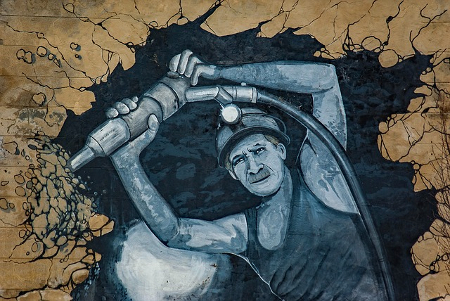True to his words, President Macron has started negotiations to provide a foundation for further labor reforms. The labor reform is nothing else but a big gunpowder barrel. Hollande’s own labor reform already upset the unions last year – and also led to serious demonstrations. So. What happened so far, what can we expect from Macron hereinafter?
One of the major, most important reforms of the Hollande administration was the labor reform. But Emmanuel Macron wants go further than the highly criticized Hollande text.
From Hollande’s to Macron’s labor reform
Macron’s planned labor reform would expand the scope of application of local decision making processes. In other words, national and sectoral rules would not take obligatory precedence anymore. The whole thing would turn around.
The agreements of local trade unions and employers could overwrite sectoral or national rules. Even the majority decision of employees could overwrite the opinion of local trade unions. Of course, no national trade union has any interest in this, as this system would reduce their political influence. It’s not a coincidence that certain trade unions have already promised summer protests against these efforts.
Furthermore, the planned reform would also introduce changes to the system of vocational trainings, inter alia by regulating training supply. It would also maximize the degree of employee compensation after a dismissal without cause. Finally, Macron’s reform would also transform the system of unemployment aid, its financing and availability. The safe settlement of the latter is, according to the president, a prerequisite for a more liberal regulation of the labor market.
Labor reform by decrees
Emmanuel Macron made it clear in his presidential election campaign that the first major reform of his presidency would be this labor reform. He also stated that this reform would not be introduced by the National Assembly, but by presidential decrees. (According to the Constitution, the newly elected National Assembly would have to consent to this, and later, also the National Assembly will have to elevate the decrees to the level law. According to current polls, the presidential party may win an absolute majority in the National Assembly, so it is expected that the necessary votes will be available.)
The majority of respondents, according to recent opinion poll data, would prefer extensive social dialogue (63% say this) to decision-making by decrees. (52% of respondents do not want the labor reform to be introduced by decrees). Two-thirds of respondents would also support a protest movement against a reform adopted by decrees.
Emmanuel Macron has already started consultations with employers’ organizations and trade unions. He met all the trade union leaders one by one. Although he seems to be flexible, ready to cooperate, he is probably also determined to complete the reform by September. (The implementing regulations would, of course, be ready and come into effect after that.)
Trade unions, according to press reports, would like to slow down the process so that reforms would not be finalized during summer. (During the summer, they could not organize protests.) Macron certainly knows this very well, and may use the bulk of his presidential political capital to carry out the reforms right now. He desperately needs to carry this one out, because without a successful labor reform there could be no decreasing unemployment, no outstanding economic growth, no results for 2022.
President Macron’s efforts on deepening European integration can also be jeopardized by a continuing French stagnation. He must proceed.
